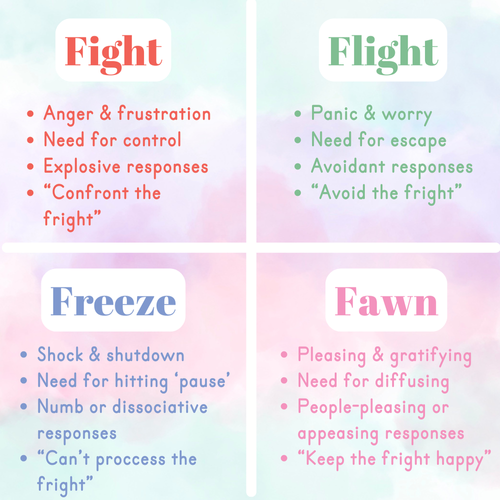Mental Health Awareness Week
Healthy Relationships
This week Em wants to consider all contributing factors to our community’s mental health and wellbeing. This page will focus on relationships: how to keep them healthy, and how to make sure they are empowering, not draining.
Humans are social creatures, and it has long been acknowledged that our relationships (whether they be close, distant, romantic, platonic, or familial) contribute significantly to our mental health. Em wants to focus on how we can ensure our relationships provide us with love, support, communication, safety, and understanding.
What is a Relationship?
Em’s take on relationship spheres
A relationship is the way in which two or more people are connected. Through friendships, families, romance, and professional spaces, you can form strong bonds with many.
Em also recognises the changing times. It is important to note that relationships can vary drastically depending on whether you communicate in-person or online.
In-person
You can interact within the environment - ever notice how our behaviours change depending on where we are? We’re much more likely to giggle quietly in a small, shared space like a library, but out in a park or at a cafe we can let out the bigger laughs and really dig into our dramatic re-telling of crazy life events.
In-person, you get a response straight away, whether it be verbal or physical. Immediate feedback is easier to read through the scrunch of a frown-line or the glimmer of humour in a friend’s eyes. This is something unique and special about seeing who you are talking to.
Body language is very important, and often gives you hidden clues as to how someone is feeling in their space. Someone closed off and uncomfortable with a topic might hug their arms to their chest and look to the floor, while someone angry might puff out their chest and square their shoulders.
Tone of voice is another indicator that we often rely on to find hidden messages buried amongst someone’s words. Sarcasm, passive-aggressiveness, humour, shock are all easy to guage by tone of voice alone.
Some things are trickier in person, especially if you’re someone who likes to take their time before speaking, or needs a moment to collect your thoughts before responding. It can also be more difficult to withdraw yourself from a conversation you need a break from. Physically removing yourself from a social space is more effort than simply turning off your phone.
Online
Ghosting, blocking, and muting someone online only takes a few clicks, and this can be helpful for some, and nerve-racking for others. If you find yourself in a tough spot with someone doing inappropriate things online, it’s easy to restrict their access to you via social media.
Social media offers you the added communication style of profile and post likes, swipes, and follows on a 24/7 basis (though, catfishing is something worth keeping in mind on many apps).
Online communication is also much easier to manage time-wise. You don’t need to account for travel time, and it’s much easier to contribute to a big group chat when you’ve got five seconds to glance at your phone partway through busy days. Most people are on the same page when it comes to response times - not everybody has their phone on them, and it’s easy to send messages without notifications so you don’t wake up a friend from another time zone!
In online spaces, you have time to respond. Screen-shotting is common, and emoji’s can depict some emotions that human faces just aren’t made for.
Cornerstones of Healthy Relationships
A healthy relationship of any kind may touch on some of the following:
Boundaries
Capacity
Triggers
Consent
Respect
Communication
Boundaries / limits
Boundaries are things to be clearly communicated. You should set boundaries to look after yourself, not to control or appease someone else.
You should use boundaries to help guide others around discomforts, limits, or learning edges which you know about yourself.
For example:
Perhaps big parties or meetings tire you out, and you set boundaries around how much socialising you can handle in one day. “My social battery has drained, I need to be on my own for the rest of the day to replenish,” is a fair boundary which will give you space to recharge and feel full again.
Maybe you dislike physical contact until you really know a person - this is reasonable and very common - a way to set this boundary could sound like, “it takes me a while to be comfortable enough to hug people.” Or even a straightforward “no thank you, I’m not a fan of hugs.” Remember, you don’t always need to explain your boundaries if doing so is difficult or uncomfortable for you.
Online relationships can have boundaries too. Telling someone “I’m really busy with work this week, I need to turn off my social media for a few days, so I won’t be online to chat,” is a good way to lay down this boundary. It is clear, you have communicated well, and you’ve also set a reasonable boundary.
Someone who cares for you should understand boundaries like this, and not push back against them for their own benefit.
Capacity / ability, scope
Your capacity should be appropriate, make sure you don’t overburden yourself for someone else’s benefit! It is perfectly acceptable to need your time and space. Without recognising your capacity and sticking to it, you might drain your energy, or even burn out entierly. This goes for relationships in all social spheres.
This could look like:
During exams, you might not be able to hang out as much, and a loved one will respect this.
Loved ones’ problems might be out of your scope, and that is okay. There are always other ways to help someone, sometimes a trusted adult or a professional might be better suited.
Trigger / prompt, activate
A trigger is something which affects your mental and emotional state. Triggers might cause a reaction to something that wouldn’t usually elicit a response, and this is okay! Lots of people have triggers which range in severity, whether they stem from trauma, phobias, past experience, or pre-disposed factors, you are valid.
Em’s take on the 4 responses to triggers or trauma
Triggers can be both positive and negative, and they aren’t always related to trauma, but when they are it is important to know that it is normal. Sometimes severe triggers can place a person into a fight/flight/freeze/fawn response, which dictates their behaviour and responses to what has triggered them.
What can a trigger look like within a relationship?
Sometimes things that have happened in past relationships can leave you hyperaware of certain topics in new relationships (like lying, or compliments, or affection. Maybe lying triggers you, or perhaps when you recieve compliments they mean more to you because you lacked them in the past.
Often memories will be triggered by words, events, or senses. It’s important to remember that your triggers don’t necessarily mean your current relationships shouldn’t be trusted. If you find that something is causing you stress or discomfort often, know that you can always reach out for help - triggers don’t need to be permanent, and they don’t make you any less strong of a person.
Consent / permission, agreement
Consent should be for everything, not just intimacy!
Healthy consent should be freely given by all parties. It should be reversible if anyone changes their mind. Consent should also be informed, meaning a discussion involving everyone takes place which gives all of the relevant information, including: risks, benefits, and alternatives. Consent should be enthusiastic and specific.
Consent looks like:
Asking, not telling - “Do you want to try this?” “What do you want to do?” “What are your boundaries?”
Enthusiasm and specificity - “I’d like that.” “Yes!” “I’m keen to do this, but not that.” “Sounds good.” “I am enjoying this.”
Respect / consideration, honour
Respect goes both ways in a relationship, and this means there is equal power between all parties. If someone is showing you respect, you should be feeling free from control and judgement.
Respect is important because it creates open, honest, and encouraging spaces where affection and the health of a relationship can flourish.
Respect involves listening to how something makes someone feel, and compromising or stepping back entierly so their boundaries are followed. For example, “PDA makes me uncomfortable.” “That’s okay, we can just hold hands at home where you’re more comfortable.”
Admitting mistakes demonstrates the respect you have for others, as well as yourself and your own growth as a person. “I’m really sorry I snapped at you, today was very stressful but I shouldn’t have taken it out on you.”
Respect comes in various forms, and can be shown in many ways.
Communication / chat, discuss
Being clear clear and specific in your communication is only one side of the equation, it takes a lot to maintain healthy communication on all ends. Speaking your mind and articulating your thoughts should be met with active listening, because communication goes both ways. You should always check in to make sure everyone is on the same page during a discussion.
“It’s clear this isn’t working for either of us, should we try a new hobby?” “Yes, I agree, I’m glad you said it!”
Communication can be both verbal and physical. Good body language (such as nodding at the right times, making eye contact, and facing your conversation partner) help encourage the speaker, and also demonstrates how well the listener is paying attention to the points being made.
Disagreements can be healthy, you don’t need to share the same opinion as someone else, but it is important to listen to others when you can, and express your own views in clear, non-confrontational ways.
“I disagree, I don’t think I want to see that movie, it looks too scary for me.” “That’s disappointing, I don’t want it to finish in theatres.” “I know. I can tell you’re really excited for it, and I wouldn’t mind if you went with another friend to see it so you don’t miss out. I just know it’s not for me.” “That’s fair, thank you for telling me, I wouldn’t want you to see a movie you won’t enjoy.”
The Healthy Relationship Wheel
A healthy relationship is made up of several important values that present in many ways and look very different for each person!
Em’s take on the healthy relationship wheel
Here is Em’s take on the values which make up a healthy relationship and what they can look like.










